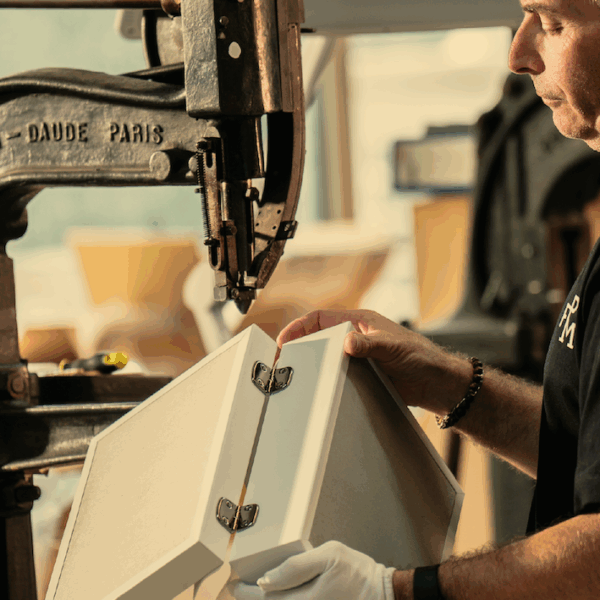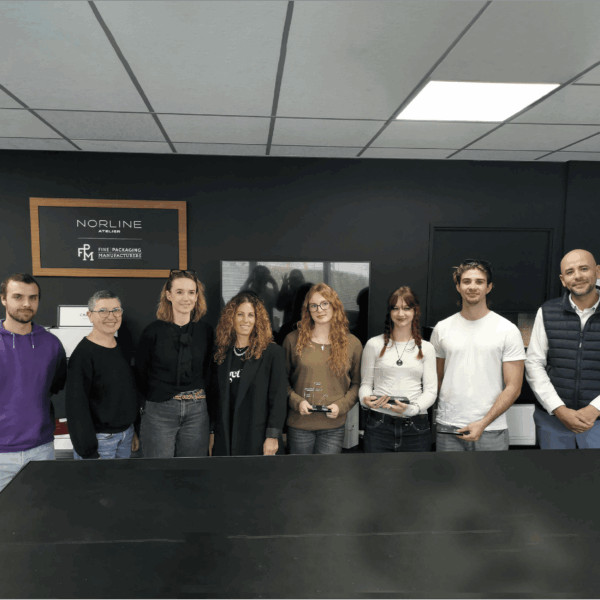FPM AND ITS SBTi COMMITMENT
At FPM, we are committed to applying ourartisanal and industrial expertise with integrity,pragmatism, and excellence. The quality of our packaging stems from our high standards and ability to design sustainably, in a way that aligns with the importance we give to our environmental impact.
Since 2019, our group, DIAM, has been making SBTi commitments with the goal of continuously reducing our carbon footprint..
COMMITMENTS ON A GLOBAL SCALE
Science Based Targets initiative (SBTi) is a global framework that empowers and guides companies towards setting themselves clear, science-based objectives for reducing greenhouse gas (GHG) emissions.
It’s a joint effort organized in line with government guidelines and in collaboration with 3 institutions:
• The Carbon Disclosure Project (CDP)
• The Global Compact des Nations Unies (UNGC)
• Le World Resources Institute (WRI)
By committing to an SBTi-aligned trajectory, DIAM is supporting the Paris Agreement’s goal of limiting global warming to 1.5°C and under by 2030..
“DIAM has a built up a strong CSR culture, which is baked into our business model and, by extension, our products. For several years now, we have been committed to the Global Compact, later accelerating our efforts through eco-design and circular economy principles. By following the SBTi framework, we ensure that the targets we set are ambitious and relevant, and that our actions are sufficient to achieve them.” Mathieu Parfait, DIAM Group CSR Director
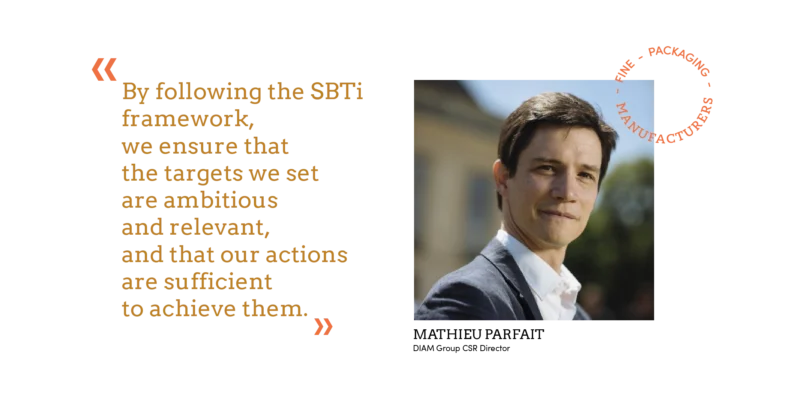
A SHARED, CONCRETE, AND MEASURABLE GLOBAL FRAMEWORK
To track the company’s GHG emissions, we conduct an annual carbon footprint audit.A shared classification system is available to every company for measuring their emissions, set out in 3 scopes:
SCOPES 1 & 2
Emissions from a company’s direct energy consumption (for example, the electricity used in offices and factories, the fuel for company cars, etc.).
SCOPE 3
All other emissions generated at different stages of the value chain, most notably:
• manufacturing (for example, raw material extraction)
• in-store use (mainly electricity consumption)
• and end of life (i.e., recycling).
THE BIGGER PICTURE: OUR GOALS AND RESULTS
DIAM is aiming for a 46% reduction of all scope 1 and 2 emissions, as well as two-thirds of scope 3 emissions, by 2030.
Since 2019, the Group has been making non-stop progress on its trajectory:
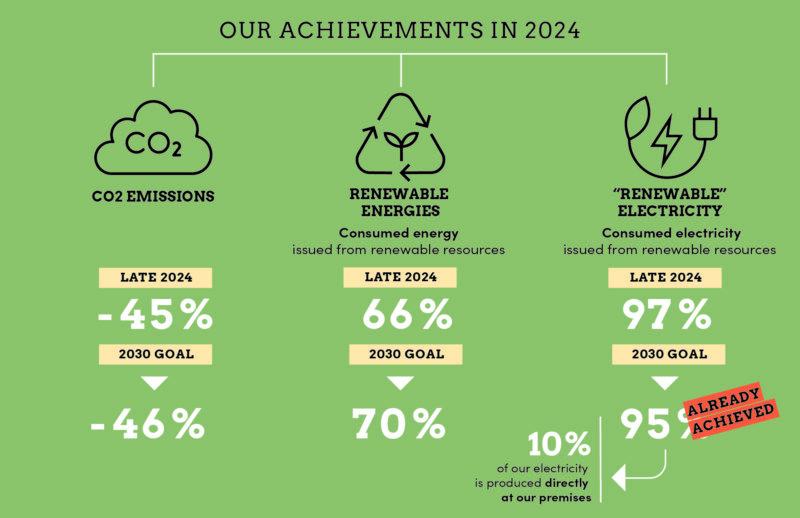
The ECOVADIS Platinum label – the highest-level classification, which we were awarded in 2024 – affirms our CSR commitments and implementation of sustainable development principles across the entire Group. Its methodology encompasses 21 criteria across key themes of society, the environment, ethics, and sustainable procurement management , leaving no stone unturned.
In May 2024, we also joined act4nature international, which aims to protect biodiversityin France. Every one of our locations has committed to rolling out at least one measurable local effort while piloting continuous improvements.
A CLOSER LOOK: EVERY DETAIL MATTERS
FPM is a manufacturer. We take care of design, sourcing, transformation , and shipping, meaning that we are responsible across every level..
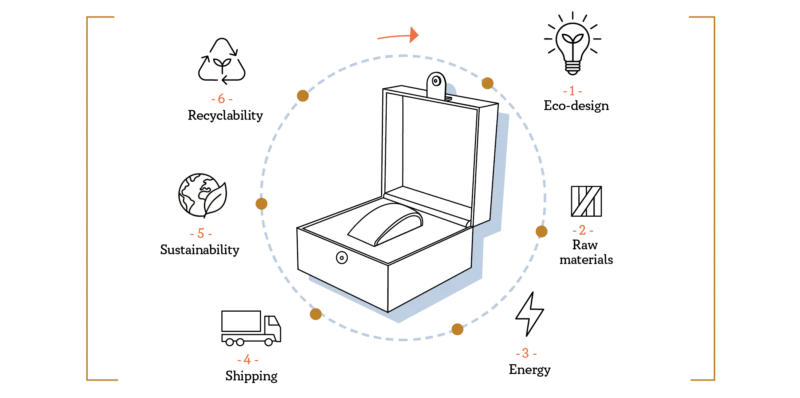
LIFE CYCLE ANALYSIS AND ECO-DESIGN
All our teams are trained in eco-design and life cycle analysis of the products they manufacture.
Every project is thoroughly scrutinized: weight, material efficiency, adhesive-free systems, sourcing, sustainability, recyclability, etc.
SOURCING
Pre-planned during the eco-design phase, our choice prioritizes low-impact raw materials, sourced locally wherever possible.
In 2025, we use 100% certified wood, as attested by our FSC® and PEFC® labels (which guarantee forest preservation).
We prioritize recycled materials wherever a project allows it and aim to use 80% recycled plastic by 2030.
DELIVERING ON OUR AMBITIONS
Thanks to the daily dedication of our teams and the trust our partners place in us, FPM is able to choose an ambitious low-carbon strategy based on our SBTi trajectory and environmental certifications.
With ongoing momentum and the DIAM Group’s support, we are diligently and efficiently pursuing our environmental initiatives, aiming to reach our goals by 2030. Between France, Portugal, and Thailand, all of our locations are committed to continuous, well-managed improvement without compromising on the excellence of our luxury packaging.
FPM teams

